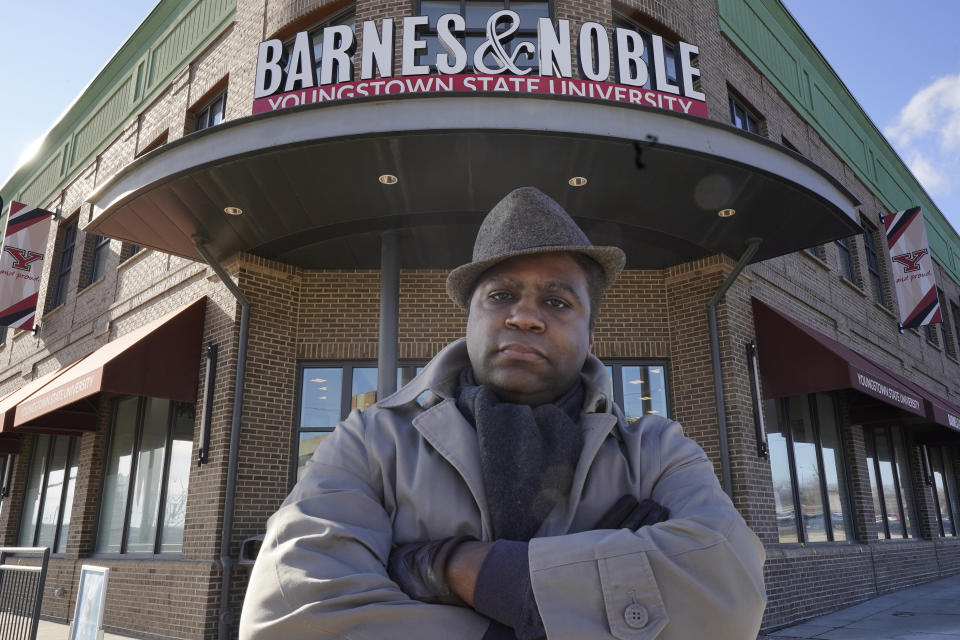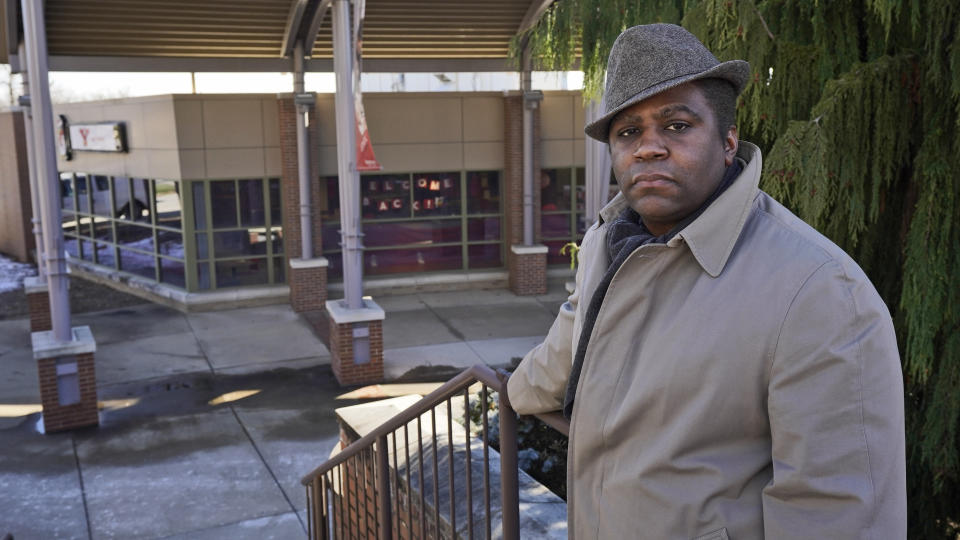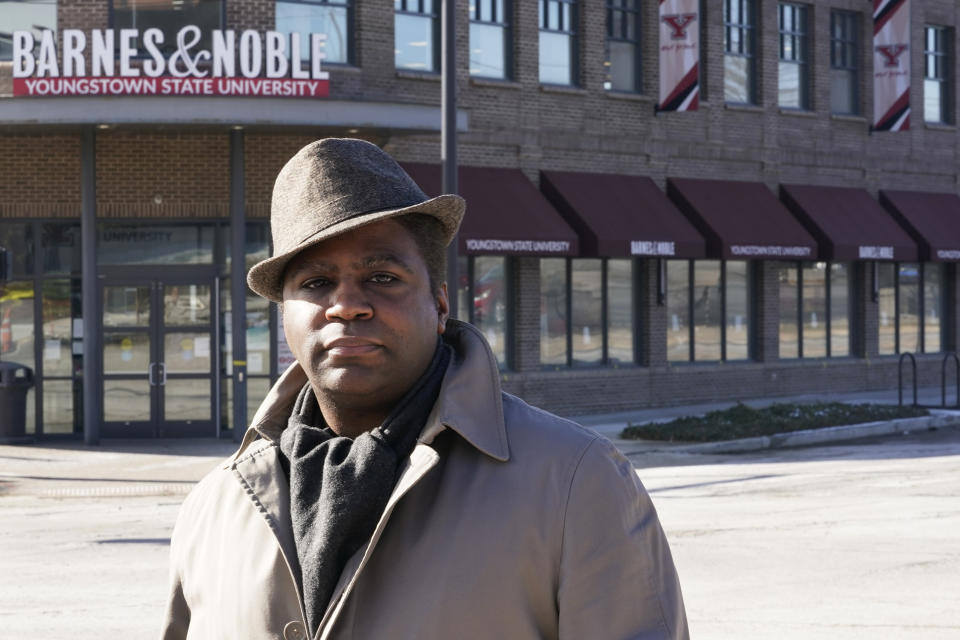'Way of the dodo': Campus bookstore's end sparks firing feud
COLUMBUS, Ohio (AP) — Andre Brady loved his job as a sales manager at the Youngstown State University bookstore. Ordering retail books and study guides. Dealing with customers. Coordinating sales of spirit wear, supplies and textbooks. And watching it all pay off as the business ended each semester tidily in the black.
His intimate knowledge of the store’s financial performance prompted Brady to bristle — and take action — when the university abolished his job in May 2016. The northeast Ohio school contended it was outsourcing its bookstore operation “for reasons of economy.”
To Brady, that just didn’t ring true.
“The bottom line is you’re always going to need a university bookstore,” Brady, 44, said in an interview. “It’s just a matter of what it’s going to look like.”
To say that Brady fought his job loss is an understatement. His initial personnel action, filed in 2016, has stretched into a five-year odyssey of administrative and judicial proceedings that’s now before Ohio’s 10th District Court of Appeals.
In a court filing March 31, Youngstown State argued Brady’s case must end. The university shuttered its former bookstore in June 2018 and turned over operations to national book retailing giant Barnes & Noble. The new store has been operating for years just across the street from campus.
Its lawyers argue both the former store and Brady’s position are no more, and everything the university could have done — rescinding abolishment of his job (albeit briefly), offering him back wages — has already been done.
Carrying on would merely be an “intellectual exercise,” they wrote, “to determine whether a hypothetical abolishment for reasons of economy is appropriate when outsourcing an operation to a private business.”
Though he can never get his job back, Brady desperately wants the state to have to answer the question of whether Youngstown State had financial justification for eliminating his union job, as state law required. Having worked at the store for decades, beginning as a college student, he strongly believes the answer is no.
A look at its books, one of Brady’s lawyers told the state civil service board, would have shown the store was profitable “year after year after year.”
At the time the store was targeted for closure, Youngstown State President Jim Tressel was under pressure from then-Ohio Gov. John Kasich to document steps the university was taking to cut costs.
A task force created by Kasich, a Republican who would launch a presidential bid that summer, issued recommendations in October 2015 for reducing costs and passing the savings along to students. It gave the schools until the following August to review their operations and report back.
Tressel and another university official informed the bookstore’s director in November 2015 of the outsourcing plan. The official, a Barnes & Noble representative and a developer did a walk-through even before the university advertised the project to bidders, transcripts show.
Tressel then promoted the privatization’s savings back to the Kasich administration, but proceedings in Brady’s case suggest he excluded $5 million in debt that Youngstown State had issued to build a new Barnes & Noble, on grounds the bookseller would pay it back.
Instead, the school emphasized savings realized from eliminating staff positions and from not having to pay for textbooks, university spirit wear, supplies, software, postage, freight and campus security services associated with the bookstore. It put savings at between $4.6 million and $5.1 million a year, about $570,000 of that from salaries and benefits, university lawyers testified.
State Personnel Board of Review member Ross McGregor, a Kasich appointee, pushed back against the school’s math. He noted that the store had been selling textbooks and all the other items at a profit. “That (profit) will no longer be — that revenue stream will no longer be available,” he said.
Then-Assistant Ohio Attorney General Matthew Karam, the university’s lawyer, accused McGregor of being sentimental.
“Well, you would agree with me that the bookstore market with Amazon and Barnes & Noble, they are starting to dominate the market,” he replied. “And the margins that they’re able to get, bookstores within universities are going the way of the Dodo bird. They can’t compete.”
University spokesperson Ron Cole said he could not comment on Brady’s case due to the litigation.
To resolve its dispute with Brady, the school informed the civil service board it was rescinding the initial abolishment of his position and calling him back to work. Then it laid him off again, this time for lack of work.
After failing to act for more than a year, the board used that second layoff to dismiss Brady’s case as moot. He filed suit in Franklin County Common Pleas Court, which ruled Brady lacks standing to appeal what it dubbed “a ministerial action.”
Brady now wants that decision overturned so his full appeal can be heard. But, mostly, he wants someone to rule on his central question that may never get an answer: Was his job eliminated for “reasons of economy” or wasn’t it?

 Yahoo Movies
Yahoo Movies 



